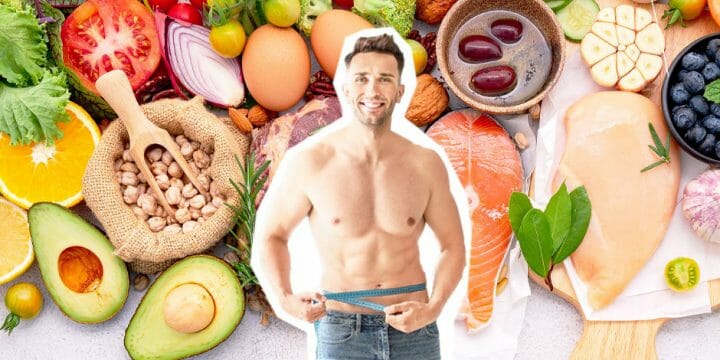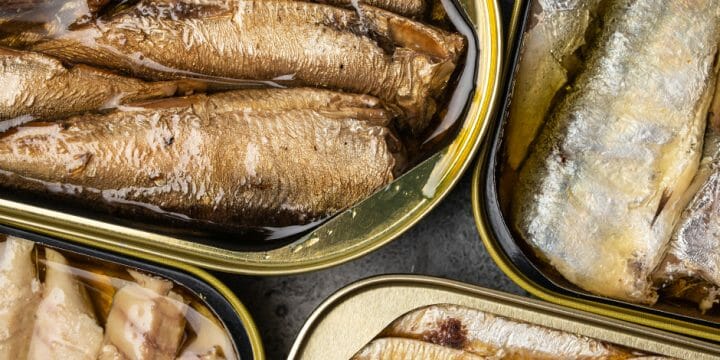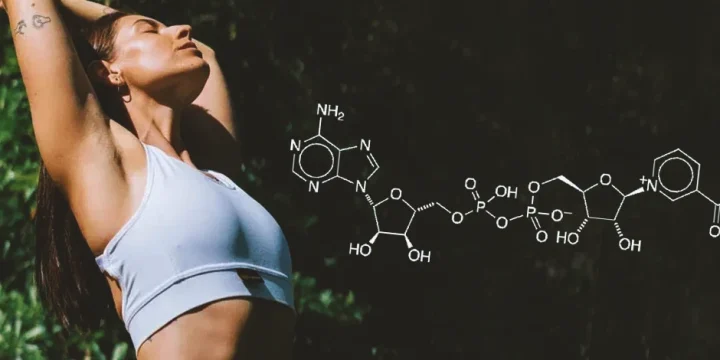As a certified personal trainer, I knew proteins as the knight in shining armor when it comes to metabolism-boosting foods that support fat burning.
But one conversation with a renowned nutritionist changed my perception.
The nutritionist mentioned a variety of foods and drinks like chili pepper that improve gut health, carry fat-burning benefits, and help individuals lose weight and change their body composition.
With her help, I decided to do comprehensive research on foods that boost metabolism as well as those that don't.
Here’s what I found.
Quick Summary
- Incorporating foods like protein-rich meals, chili peppers, and green tea into your diet can significantly boost metabolism and aid in fat-burning.
- While some foods accelerate metabolism, others, like alcohol, sugary drinks, and refined grains, can slow it down, leading to fatigue and headaches.
- One of the studies from the National Center for Biotechnology Information website shows that proteins can increase the thermic effect of food (TEF) by 15-30%, enhancing metabolic rate more than fats or carbs.
- Based on my experience as a nutritionist, balancing your diet with these metabolism-boosting foods can be an effective strategy for weight loss and improved health.
11 Foods That Boost Metabolism

If you're looking to increase your metabolism to lose weight and promote fat burning, fill your kitchen with these 13 metabolism boosting foods.
Incorporating these nutrient-dense options into your diet can help rev up your metabolic rate, allowing your body to efficiently burn calories and shed unwanted pounds.
From spicy peppers that contain capsaicin, known for its thermogenic properties, to green tea, which is rich in catechins that promote fat oxidation, these foods can give your weight loss efforts an extra edge.
Other metabolism-boosting options include lean proteins, whole grains, fruits, vegetables, and healthy fats like avocados and nuts.
By making these foods a regular part of your diet, you can support your body's fat-burning processes and achieve your weight loss goals more effectively.
1. Protein-Rich Foods
High protein meals for muscle gain are the go-to foods when it comes to boosting metabolism. In my experience as a personal trainer, I've consistently seen the benefits of high-protein meals for muscle gain and metabolism boosting. I always recommend including protein-rich foods like eggs, meat, dairy, legumes, nuts, and seeds in my clients' diets for enhanced metabolic rates.
One of the studies from the National Center for Biotechnology Information website shows that proteins increase TEF significantly compared to other foods. Statistically, proteins boost metabolic rate by 15-30%, fats by 0-3%, and carbs by 5-10% [1].
In addition, another study from the National Center for Biotechnology Information website claims that proteins keep you satisfied for longer and prevent overeating [2].
Related: High Protein Vegetables for Bodybuilding
2. Mineral-Rich Foods
Mineral iron and selenium-rich foods such as meat, legumes, seafood, nuts, and seeds are essential for the proper functioning of the thyroid gland, which, as we’ve seen, regulates metabolism [3].
Needless to say, a diet low in iron or selenium reduces the thyroid’s ability, therefore slowing down metabolism.
3. Chili Peppers

Incorporating chili peppers into my diet and recommending them to clients has shown noticeable effects on metabolism, thanks to capsaicin's ability to increase calorie burn. These spices are a staple in my fat-loss nutritional plans.
Experts studying the subject found that capsaicin enhances metabolism [4]. What's more? Capsaicin also has appetite-reducing properties. The same was proven by a study that subjected over 200 people to the chemical. The results showed a significant reduction in the consumption of calories [5].
4. Coffee
Caffeine is another metabolism booster. This can be backed by multiple studies that discovered that people who consume three cups of coffee burn an extra 100 calories daily [6].
Studies also show that caffeine aids in fat loss by boosting performance and endurance during a strength training exercise. However, this may vary depending on age and body weight [7].
5. Tea
Tea contains catechins, a health-boosting compound that works hand in hand with caffeine to increase your metabolic rate, thus boosting metabolism to promote weight loss.
Our research also found that green tea and oolong are particularly helpful in increasing fat oxidation, which helps burn more calories when exercising. But this may also vary from person to person [8].
Related Articles:
6. Beans and Legumes

Beans and legumes such as peas, chickpeas, lentils, and even peanuts are protein-high plant foods. And as we’ve seen, foods rich in protein have a high TEF. In addition, proteins make your body burn more fat to digest.
7. Ginger
Having added ginger to my own diet and seen its effects on clients, I can attest to its metabolism-boosting abilities. It's a great addition for anyone looking to enhance their metabolic rate naturally.
A study investigating its properties found drinking hot water containing ginger powder could burn up to 43 calories more than hot water alone. Moreover, the hot water ginger was found to enhance satiety [9]. I incorporated this as part of my diet and have evaluated the best ginger supplements on the market that you might want to try.
8. Apple Cider Vinegar
Researchers who ran tests on animals found the effects of apple cider vinegar helpful in enhancing fat-burning for energy [10].
Although there are no similar studies with humans as the subjects, experts claim a human-animal equivalence. There are additional claims that apple cider also enhances satiety [11].
9. Water

Multiple studies claim drinking water boosts metabolism by 24-30% [12]. According to the experts, about 40% of the increase can be attributed to the calories needed to heat water to body temperatures in what is known as water-induced thermogenesis [13].
That said, the effect only lasts 40-90 minutes. In addition, it may vary from one person to another.
10. Avocado
Avocado is rich in monounsaturated and polyunsaturated healthy fats. Not only does eating avocado for weight loss good, but it also promotes satiety.
A 2013 study found that half an avocado at lunch was enough to aid overweight people in feeling satisfied. It also reduced their desire to eat more in the following hours [14].
11. Dark Leafy Green Vegetables
Kale, spinach, and other leafy green vegetables that burn fat can boost metabolism because their iron-rich content is essential for growth, development, and metabolism [15].
In addition, greens have healthy amounts of magnesium and other minerals that support metabolism [16].
Related: Best Metabolism Booster Pills
FAQs
What Drinks Increase Metabolism?
Drinks like water, green tea, coffee, and high-protein beverages increase metabolism. They promote satiety, and people who drink them end up consuming fewer calories.
Other drinks include apple cider vinegar, vegetable juice, and ginger tea.
Does Cold Water Increase Metabolism?
Yes, cold water increases metabolism. Recent studies have revealed that drinking half a liter of water increases metabolism by 10-30% for an hour.
Additional research proved that cold water's calorie-burning effect was even more remarkable since the body uses energy to heat it to average body temperature [30].
Does Lemon Water Burn Fat?
Yes, lemon water promotes fat burning. It boosts metabolism, promotes fullness, supports hydration, and helps in weight management.
Is Guava Good for Weight Loss?
Guava is one of the best fruits for weight loss because it's packed with fiber, which can induce the feeling of fullness. Guava contains vitamin C, which plays an important role in fat oxidation.
Is Tomato Juice Good for Weight Loss?
Tomato juice can be good for weight loss. Tomato juice is low in calories and can aid in weight loss when consumed in moderation, but watch out for added sugars and sodium in store-bought versions.
How Do Spices Like Turmeric and Ginger Impact Metabolism?
Spices such as turmeric and ginger can boost metabolism due to their thermogenic properties, which increase the body's heat production and metabolic rate. Incorporating these spices into your diet can aid in weight loss and improve overall metabolic health.
What Is the Role of Hydration in Metabolism?
Staying well-hydrated is crucial for maintaining an optimal metabolic rate, as adequate water intake can increase the number of calories your body burns. Drinking sufficient water throughout the day can support weight loss efforts and enhance metabolic efficiency.
How Do Different Types of Tea Affect Metabolism?
Green, oolong, and white teas contain catechins and caffeine, which work together to boost metabolism and increase fat oxidation. Regular consumption of these teas can enhance weight loss and improve energy expenditure during physical activities.
Does Meal Frequency Influence Metabolic Rate?
The impact of meal frequency on metabolism is a subject of ongoing debate; some studies suggest that eating smaller, more frequent meals can keep the metabolism active, while others find no significant difference. Understanding your body's response to meal patterns is key to optimizing your metabolic rate.
How Do Probiotics Influence Metabolism?
Probiotics, found in foods like yogurt and kefir, play a significant role in gut health, which in turn can influence metabolism. They help in maintaining a healthy gut flora, which is linked to improved metabolic processes and can aid in weight management.
References:
- https://www.ncbi.nlm.nih.gov/pmc/articles/PMC4258944/
- https://pubmed.ncbi.nlm.nih.gov/26791555/
- https://www.ncbi.nlm.nih.gov/pmc/articles/PMC4044302/
- https://www.ncbi.nlm.nih.gov/pmc/articles/PMC5426284/
- https://www.ncbi.nlm.nih.gov/pubmed/24246368
- https://pubmed.ncbi.nlm.nih.gov/21366839/
- https://pubmed.ncbi.nlm.nih.gov/23573201/
- https://www.ncbi.nlm.nih.gov/pubmed/20142827
- https://www.ncbi.nlm.nih.gov/pmc/articles/PMC3408800/
- https://www.ncbi.nlm.nih.gov/pubmed/26176799
- https://www.ncbi.nlm.nih.gov/pubmed/23979220
- https://www.ncbi.nlm.nih.gov/pubmed/21750519
- https://pubmed.ncbi.nlm.nih.gov/24179891/
- https://nutritionj.biomedcentral.com/articles/10.1186/1475-2891-12-155
- https://www.ncbi.nlm.nih.gov/pmc/articles/PMC8386848/
- https://ods.od.nih.gov/factsheets/Magnesium-HealthProfessional/
- https://link.springer.com/article/10.1007/s13679-014-0129-4
- https://www.ncbi.nlm.nih.gov/pmc/articles/PMC4808858/
- https://www.ncbi.nlm.nih.gov/pmc/articles/PMC4808858/
About The Author
You May Also Like






